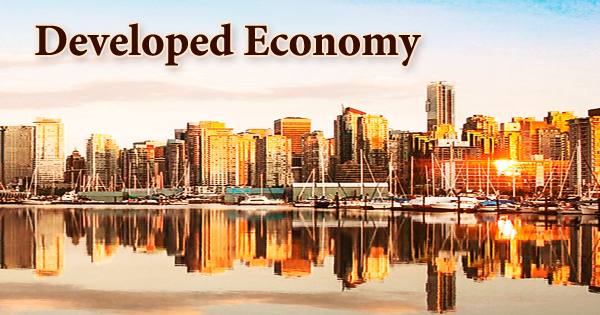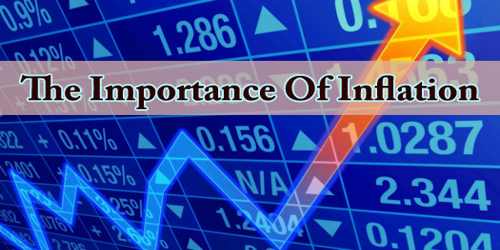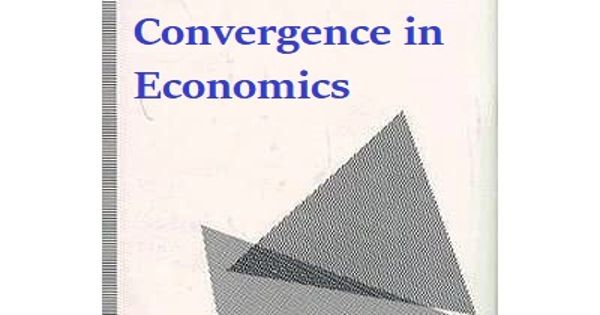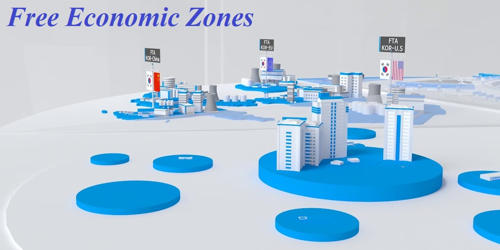A developed economy is one that is located in a developed world with a high degree of economic growth and stability. It is an economy (country) with a significant degree of monetary action described by high per capita pay or per capita gross domestic product (GDP), undeniable degree of industrialization, created framework, mechanical headway, a generally high position in human turn of events, wellbeing and training. The income per capita or per capita gross domestic product, the level of industrialization, the general standard of living, and the amount of technical infrastructure are all standard metrics for determining a country’s level of growth.
Developed economies will in general show better outcomes on estimation files, which are approaches to gauge the monetary and non-financial elements of a country. Noneconomic factors, for example, the human advancement index (HDI), which measures a nation’s degrees of schooling, proficiency, and wellbeing into a solitary figure, can likewise be utilized to assess an economy or the level of improvement. A sustainable economy, a responsive polity, an egalitarian environment, and competent administration are the four characteristics of a more developed economy.
Globalization also helps developed economies in achieving higher levels of income and living standards. The features of developed economies are as follows:
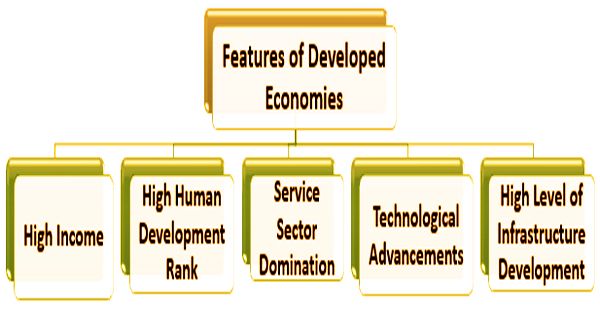
- High Income: As calculated by per capita income, they have a high income. The term “high income” is defined differently by each organization. A per capita income of $12,376 or more is considered high income by the World Bank, and any nation with a per capita income above this threshold and a high ranking in other factors qualify for inclusion in the list of developed countries.
- High Human Development Rank: Alongside being rich, residents of this economy ought to likewise encounter a superior personal satisfaction which can be measured by various variables including yet not restricted to, proficiency rates, future, newborn child death rates, and admittance to medical services. The United Nations (UN) created and compiles the Human Development Index (HDI) to tie all of this together. The UN publishes the index on a regular basis to monitor changes in the quality of life in various countries over time.
- Service Sector Domination: When a country’s economy matures, the service sector tends to play a greater role in the economy. Manufacturing is allocated to other developing countries, while developed economies concentrate on innovation and the production of high-value-added goods in the future.
- Technological Advancements: Because of their professional workers and their tradition of risk-taking, they are much more technologically advanced. They support creativity and are actively engaged in the development of emerging advanced technology in a number of fields.
- High Level of Infrastructure Development: They are major infrastructure investors, which contributes to even stronger economic growth. Roads, rail, air, water, and civil facilities in the United States are much superior to those in less developed or underdeveloped countries.
The idea that an economy is “developed” isn’t thoroughly characterized and is rather founded on the thought of a huge number of elements. The most well-known measurement used to decide whether an economy is created or creating is per capita gross domestic product (GDP), albeit no exacting level exists for an economy to be considered either creating or created. In reality, a country’s level of development is affected by factors that aren’t directly linked to the economy. Instead, a number of variables (economic and otherwise) affect and are evaluated by how mature an economy is. Some of them are:
- The production level of a country
- The consumption level of a country
- The quantity and quality of natural resources
- The quantity and quality of public infrastructure
- The education of the general public
- The level of income of average citizens
- The incidence of poverty
- The birth rate
- The happiness of employees
There is no clear formula for classifying an economy as developed or developing. Only when a country’s economy ranks highly on a number of metrics, such as per capita income, citizen quality of life, health, education, and technological innovation, can it be considered established. An economy that positions high in any of the boundaries yet wavers on others can’t be named as a created. For nations that are hard to order, market analysts go to different variables to decide improvement status. Standard-of-living metrics, such as child mortality rates and life expectancy, are also useful, but they have no fixed boundaries.
Countries that do not have the same degree of economic stability, industrialization, or development as industrialized countries are referred to as “emerging countries,” “least-developed countries,” and “developing countries.” The Human Development Index assigns a ranking between 0 and 1 to countries based on factors like “long and stable life,” “education,” and “standards of living,” while the World Happiness Index assesses happiness by surveying people’s overall “quality of happiness.”
Developed economies by and large are simpler to work together in, which prompts higher occupation creation. It gives higher opportunity of articulation to its residents, which brings about the helpful improvement of the nation just as its residents. In contrast to underdeveloped and developing economies, these economies are stronger and more stable. Proponents of globalization often assert that it is assisting in the raising of developed countries out of poverty and onto a path of better living conditions, higher incomes, and the use of new technology.
Developed countries by and large embrace deregulation and unrestricted economy standards for quicker financial turn of events. It causes other immature nations to improve their economy and free their kin once again from destitution. Because of the unrestricted economy, these economies assemble a ton of monetary overabundances that lead to emergency. One good example is the subprime economic crisis of 2008-2009, in which the entire world suffered as a result of a few organizations’ improper business practices. The legacies of developed economies are substantial. These economies are large and strong, and they play an important role in sustaining global peace.
Information Sources:
